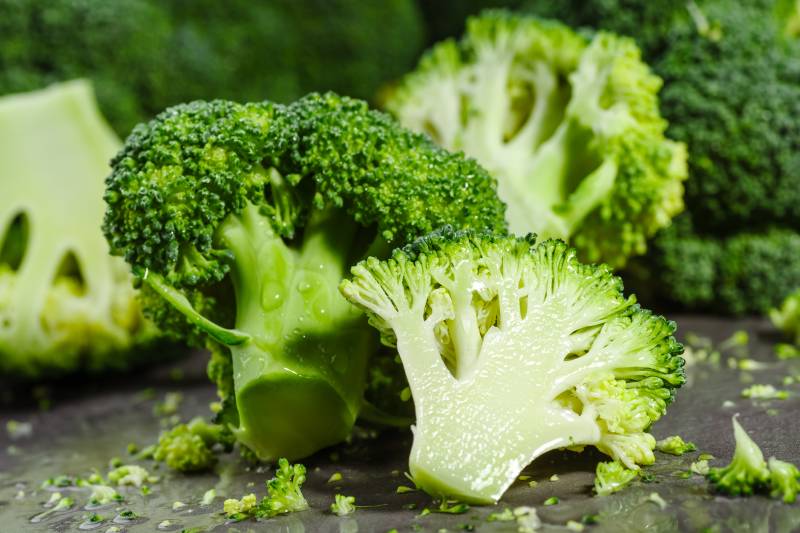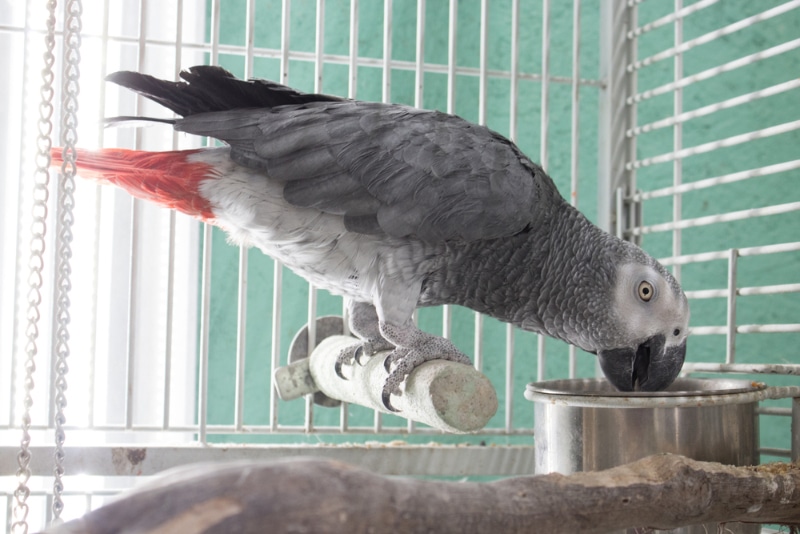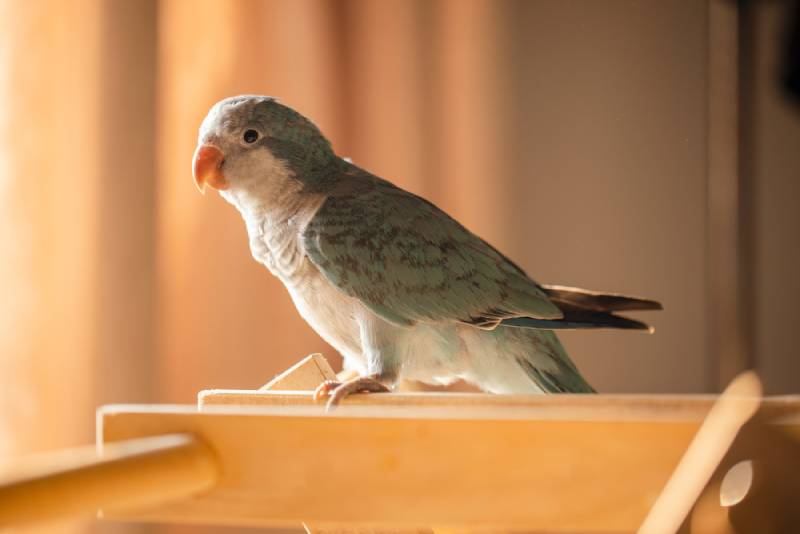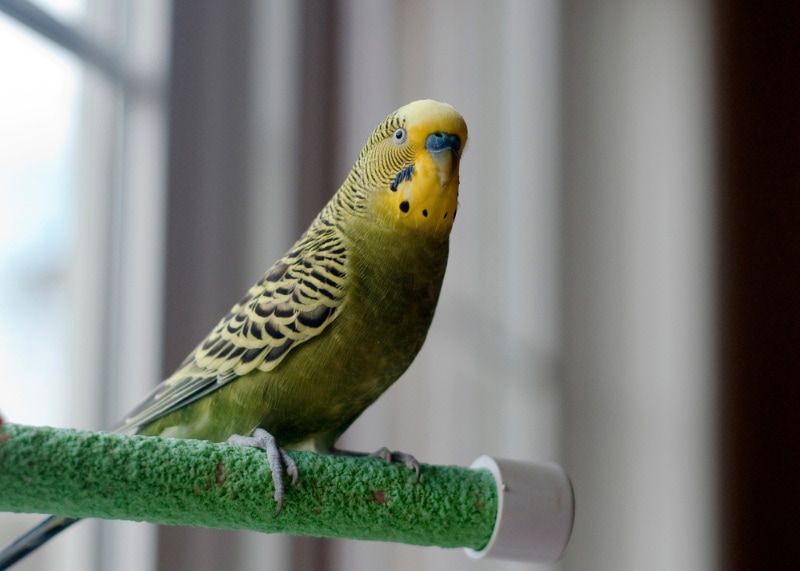Can Parrots Eat Broccoli? Vet-Reviewed Facts & FAQ
By Ed Malaker
Updated on

Click to Skip Ahead
This article has been reviewed for factual accuracy by a qualified veterinarian, using information available at the time of publishing. Parrot owners are urged to consult with their veterinarian when making dietary decisions for their pet. This article is designed to provide general information but it does not take into account your pet’s health status or circumstances.
Parrots are amazing pets that come in various colors and have amazingly long lifespans. Comprising over four hundred different species, these feathered friends come in different shapes and sizes with different dietary requirements. They are fun to interact with and have a diverse diet, so sharing human food with them can be an entertaining bonding experience. Since many parrots enjoy fruits and vegetables, it’s natural to wonder if they can eat broccoli too, especially since it’s so healthy for humans. Fortunately, yes, most parrots can eat broccoli, but make sure you double check the nutritional requirements for your pet’s species.
Keep reading as we list the potential health benefits, along with a few risks to know about.
Benefits of Feeding Broccoli to Parrots
- Vitamin C: While it’s admittedly rare because parrots can make their vitamin C, vitamin C boosts the immune system.
- Vitamin K: This is essential for blood clotting.
- Vitamin A: This is important for immunity.
- Calcium: This is necessary for strong bones and eggshell formation in breeding parrots.
- Fiber: This is vital for maintaining a healthy digestive system in parrots.
- Antioxidants: Broccoli has many antioxidants, like sulforaphane, that can help protect your parrot’s cells from damage caused by free radicals.

Potential Risks and Precautions to Take
- Gastrointestinal Sensitivity: Some parrots may have sensitive stomachs and experience digestive upset if introduced to new foods too quickly. Introduce broccoli slowly and stop if you notice any digestive problems.
- Pesticides and Herbicides: Always ensure that the broccoli that you offer to your parrot is free from pesticides and herbicides by washing it thoroughly before serving.
- Individual Preferences: Every parrot is unique and their preferences can vary. Some parrots may love broccoli, while others may not show much interest in it. Don’t force your parrot to eat broccoli if they don’t enjoy it.
Preparing Broccoli for Parrots
Clean the broccoli thoroughly with running water to remove any pesticides or contaminants. Cut the broccoli into small, manageable florets or pieces that your parrot can easily pick up and eat.
Some parrots enjoy raw broccoli, and it retains more of its nutritional value this way, but you can lightly cook it if your parrot prefers it that way. Be careful not to overcook it, though, because they usually like a bit of crunchy texture. You can mix small broccoli pieces into your parrot’s regular pellet or seed mix to encourage them to try it.
Do not overfeed broccoli to your parrot, as an excess of one food can lead to an unbalanced diet. When introducing new foods like broccoli, pay attention to how your pet reacts. Some parrots may take time to develop a taste for it, while others may enjoy it immediately. Be patient and respect your parrot’s preferences.
If you have concerns about your parrot’s diet or their response to new foods, consider consulting with an avian veterinarian or a specialist in parrot nutrition. They can provide guidance tailored to your parrot’s specific needs.

Typical Parrot Diet
While parrots are mostly known for eating fruits and vegetables in the wild, many are omnivores that can eat a wide range of foods and are fond of insects and small invertebrates. Others, such as the Australian rainbow lorikeet, like to feast on nectar. For your pet parrot, you need to check their species-specific dietary requirements although typically they should eat species-appropriate parrot pellets, which contain a special blend of ingredients to help keep your pet healthy, along with several other foods, like fruits and vegetables, as treats.
Frequently Asked Questions
Can I Feed Broccoli to My Parrot Every Day?
While broccoli is nutritious, it should be part of a varied diet. Overfeeding broccoli can lead to an unbalanced diet and poor nutrition. It’s best to offer it as an occasional treat or as part of a diverse selection of vegetables.
How Do I Know If My Parrot Likes Broccoli?
Each parrot has their preferences. Some may take to broccoli immediately, while others might need time to acquire a taste for it. Monitor your parrot’s reactions and behavior when offering them broccoli, and compare it to how they react when eating other foods to gauge their interest.
Can I Feed Frozen Broccoli to My Parrot?
You can feed small pieces of frozen broccoli to your parrot as long as it doesn’t contain any additional ingredients. It can be a nice treat during the summer season.

How Much Broccoli Is Safe to Feed My Parrot?
The amount of broccoli that you can feed your parrot depends on their species and health status. Ask your veterinarian if you’re not sure how much broccoli to include in your pet’s diet.
How Do I Store Broccoli for My Parrot?
Store broccoli in the refrigerator to keep it fresh. Keep it in a clean container or bag, and try to use it within a few days to maintain its nutritional value.
Can I Feed Broccoli to My Parrot When It’s on a Skewer or Part of a Foraging Toy?
Parrots enjoy foraging, and incorporating broccoli into a foraging toy or on a skewer can provide mental stimulation and encourage physical activity. It’s a great way to make mealtimes more interesting for your parrot.
Summary
Broccoli is a great treat for your parrot, and feeding it to them will provide several important nutrients for good health, including vitamins C, K, A, fiber, and calcium. Most parrots like the flavor, and the color can attract them to eat their pellets or other foods if you mix it in. The downside to broccoli is that it may contain pesticides if you don’t wash it carefully, and it’s high in oxalates that can lead to kidney stones. It might also cause gastrointestinal distress in some birds, so you must introduce it slowly and watch your parrot carefully to see how they react.
Featured Image Credit: Bukhta Yurii, Shutterstock













